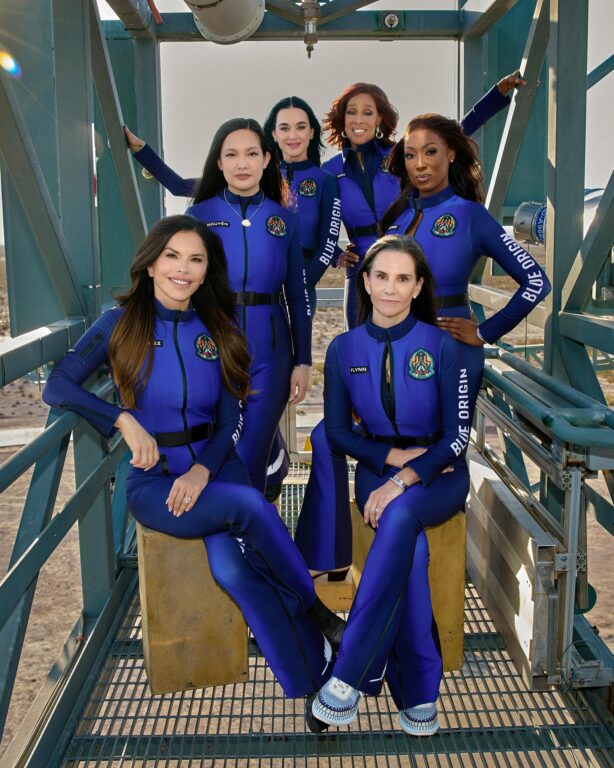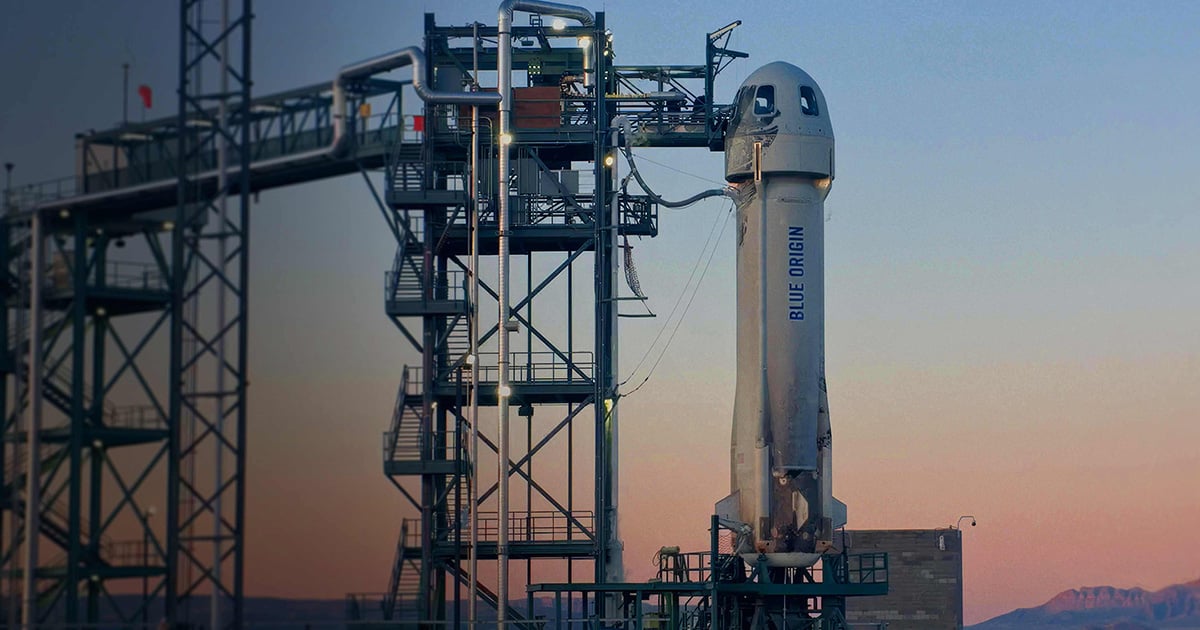VAN HORN, Texas – Early Monday morning, six women embarked on a high-profile journey to the edge of space aboard Blue Origin’s New Shepard rocket, returning to Earth just 11 minutes later in what the company billed as a historic all-female spaceflight.
The passengers—pop star Katy Perry, journalist Gayle King, Lauren Sánchez, Aisha Bowe, Amanda Nguyen, and Kerianne Flynn—experienced a brief taste of weightlessness and stunning views of Earth from over 62 miles above the surface.

While the trip was celebrated as a milestone, it has sparked debate over the misuse of the term “astronaut” and the growing trend of space tourism.
The flight, designated NS-31, launched at 8:30 a.m. local time from Blue Origin’s West Texas facility. The reusable New Shepard rocket carried the women past the Kármán line, the internationally recognized boundary of space, before the capsule separated and descended back to Earth under parachutes.
For approximately four minutes, the passengers floated in microgravity, tumbling, performing handstands, and gazing at the planet below. Perry even sang Louis Armstrong’s “What a Wonderful World” during the brief weightless period, adding a theatrical flair to the experience.
However, calling these women “astronauts,” as Blue Origin and some media outlets have done, has drawn sharp criticism. Unlike professional astronauts, who undergo years of rigorous training to conduct complex scientific research and operate spacecraft, the NS-31 passengers were simply along for the ride.
No scientific experiments were conducted during the flight, and the women had no role in piloting or controlling the fully automated New Shepard vehicle. Critics argue that labeling them astronauts diminishes the dedication of career spacefarers like Sally Ride, Peggy Whitson, or Christina Koch, who have spent decades mastering the skills needed for missions that advance human knowledge.
“This was an extreme amusement park ride, not a space mission,” said one European Space Agency executive. “Real astronauts train their entire lives to conduct experiments and contribute to science. These passengers paid for a ticket to experience a few minutes of thrill—nothing more.”
Blue Origin, founded by Jeff Bezos, has been a pioneer in the burgeoning space tourism industry since its first crewed flight in 2021. The company’s New Shepard rocket is designed for short, suborbital hops, offering wealthy clients a chance to briefly cross into space for a hefty price—reportedly requiring a $150,000 deposit just to reserve a seat. While Blue Origin has not disclosed the exact cost of the NS-31 flight, estimates for similar trips suggest tickets could range from $300,000 to over $1 million. Some passengers, including celebrities, have reportedly flown as “honored guests” at no cost.
The all-female crew was selected by Lauren Sánchez, a former journalist and Bezos’ fiancée, who emphasized the mission’s goal of inspiring young women and girls.
“This is about showing what’s possible,” Sánchez said at a post-flight press conference. Gayle King echoed the sentiment, calling the trip a “journey” rather than a “ride” and dismissing critics as “haters” who fail to grasp its significance. Yet detractors, including actress Olivia Munn, have called the venture “gluttonous,” pointing to economic inequality and environmental concerns surrounding space tourism.
The flight drew a star-studded crowd, with figures like Oprah Winfrey, Kris Jenner, and NASA astronaut Jeanette Epps watching from the ground. While the passengers expressed awe and gratitude—Perry kissed the ground upon landing, and Nguyen spoke of healing from past trauma—the mission’s lack of scientific purpose has fueled skepticism.
Posts on X reflected this divide, with some users praising the women’s courage while others called the trip a “shameless ego trip” that mocks the legacy of true astronauts.
Blue Origin defends its tourism model, arguing it supports the commercial space industry and democratizes access to space. The company claims its reusable rockets produce only water vapor, minimizing environmental impact, though experts warn that frequent launches could still harm the ozone layer.
For now, flights like NS-31 remain exclusive, out of reach for most, resembling a luxury experience rather than a scientific endeavor.

